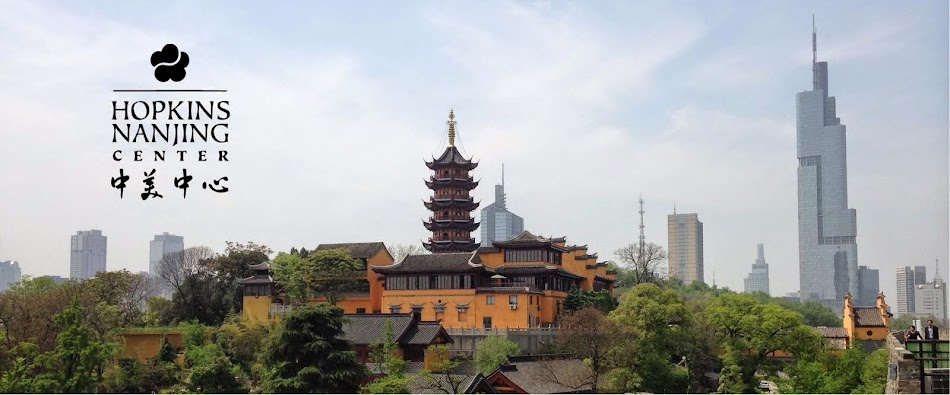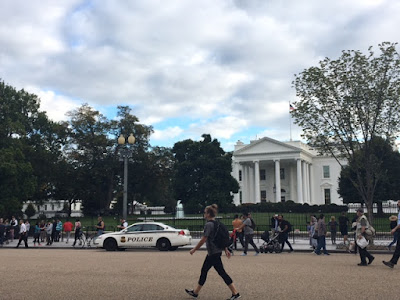Each semester at HNC four students are elected to the 班委 Banwei (student committee), who act as a liaison between the administration and student body, and plan cultural and community events. This fall, Naomi Garcia 澳米, 马艳霞Ma Yanxia (Coco), John Wilhoite, and 金晓于 Jin Xiaoyu (Arthur) were all elected to represent the student body.
 |
| HNC's Fall 2016 Banwei Student Committee |
--
What are three words you would choose to describe yourself?
Naomi: Easily-amused, child-like, sleep-deprived.
Xiaoyu: Independent, persistent, confident.
So why did you apply to HNC?
Naomi: I graduated from St. Mary’s College in Maryland with three degrees in French, Spanish and Chinese. Chinese is a very challenging language to learn and use in professional work. I applied to the HNC because I think it is the most incredible way to break down the barriers that I felt in China as a foreigner, and live within an accepting community among Chines and international students.
Xiaoyu: To learn more than just law, which I studied at East China University of Political Science and Law. I wanted to know more about American culture and make a lot of friends. I also wanted to improve my English so I could utilize it in professional work
.
What has been the most challenging part about studying at HNC?
Naomi: The most challenging part about studying here is the learning curve; I feel that it was so steep at first, but now I am struggling to advance to the next level.
Xiaoyu: In short, my limited vocabulary range sometimes makes it difficult for me to communicate with others in English efficiently.
What has been your favorite experience as Banwei so far?
Naomi: My favorite experience as Banwei so far was when a student approached me to say that singing on stage was incredibly helpful to her spirituality, and that she would not have had the courage to do so without our open mic night.
Xiaoyu: Organizing the activities on Friday night, which all our classmates appreciate.
What plans does Banwei have for the rest of the semester?
Naomi: We plan to have more gatherings in the lounge, to share some Chinese and American cultural games, and celebrate Halloween with pumpkin carving!
Xiaoyu: We already celebrated the Mid-Autumn Festival and now have the Halloween party coming up; after that we have plans for Thanksgiving Day, Christmas and New Year’s Day; we may also organize a short trip in the fall break or plan some other fun things in between.
--
As you guys can see there are a lot of plan coming up! And as a student, I’m excited to attend all of them. Especially Halloween!
Written by Chelsea Toczauer, MAIS 2017










